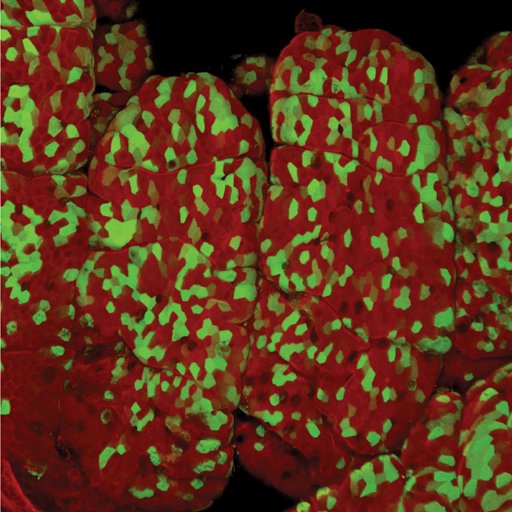Postdoctoral Position in Intestinal Epithelial Biology
Posted by Denis Krndija, on 18 May 2021
Location: Toulouse, France
Closing Date: 15 June 2021

Our newly established team “Gut Development and Homeostasis”, led by Denis Krndija, is recruiting a postdoctoral researcher, funded by ATIP-Avenir. Our main research focus is on the mechanical properties of epithelial tissues, and how they are integrated into the physiological context of the organ, using the mouse gut as a model.
Project
The gut epithelium is one of the fastest-renewing tissues in the body (3-5 days), and is unique for withstanding continuous mechanical, chemical and biological insults whilst maintaining renewal and barrier function throughout adult life. We have recently showed that gut epithelial cells exert active migratory forces and that active migration is critical for steady-state tissue turnover in the adult mammalian gut (Krndija et al., Science 2019). We now intend to define how the epithelial renewal is initially established during gut development, and how the tissue and barrier integrity are shaped and maintained in the context of tissue-intrinsic and extrinsic mechanical forces. The postdoctoral researcher will work at the interface of developmental biology, cell biology, and physics, combining state-of-the-art live tissue imaging and novel organoid approaches with pharmacological and force perturbations and theoretical modelling, towards identifying the fundamental mechanisms of epithelial renewal in the intestine.
Profile
The candidate should hold a PhD in Life Sciences – cell biology and/or developmental biology, and have a strong interest in gut epithelial tissue development and/or homeostasis, and tissue mechanics. Experience in imaging, image analysis, mouse models and/or tissue culture is desired. Training will be provided on-site for approaches specific to our group. The candidate will participate in defining the research strategy, conduct experiments, analyse results and contribute to research dissemination. The candidate should be able to work as a part of a team, be self-driven and organised, with strong written and spoken communication skills in English. Although post-doctoral salary will be initially provided (up to 2 years), applicants are expected to meet the criteria to compete for fellowship funding and/or a permanent position at CNRS.
We are an equal opportunity employer, committed to creating a diverse, multicultural and inclusive environment, and we encourage applications from candidates from different socioeconomic and historically under-represented backgrounds.
Location
We are located at the Centre for Integrative Biology of Toulouse (CBI) in a brand-new building on the main campus of the Université Toulouse III-Paul Sabatier. The CBI offers a very dynamic and collaborative scientific environment (40 research groups) and in-house state-of-the-art core facilities and platforms.
Toulouse is a warm and vibrant city situated in the heart of southwest France, home to one of the oldest European universities, rich in culture and history, and offering excellent life quality.
Application details and contact
Please send your CV (incl. publication list), a motivation letter describing your research interests, and two letters of recommendation to Denis Krndija – denis.krndija@univ-tlse3.fr, before June 15th, 2021.
Starting date: from September 2021
Start date: 1 September 2021
Closing Date: 15 June 2021
Scientific fields: Cell biology, Morphogenesis
Model systems: Mouse
Duration: Fixed term
Minimum qualifications: PhD in Life Sciences

